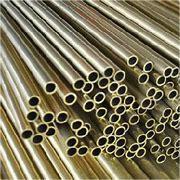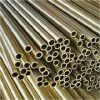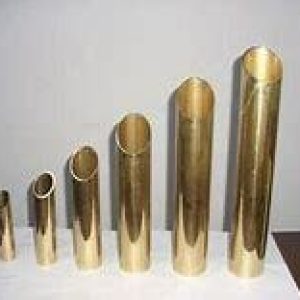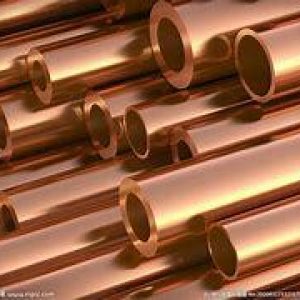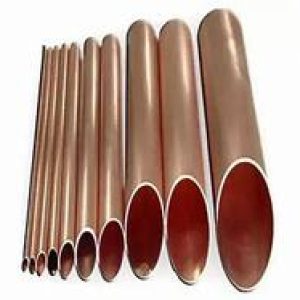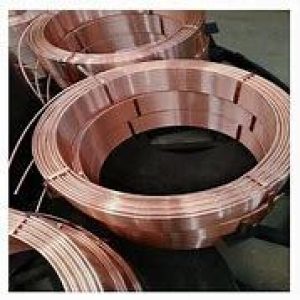Overview of Polyethylene Insulated Copper Pipe
Material: Polyethylene Insulated Copper Pipe is made from pure copper, which is a reddish-orange, malleable, and ductile metal. The most common types used for piping are Type K, Type L, and Type M, with varying thicknesses and applications.
Sizes: Copper pipes come in various diameters, typically ranging from 1/8″ to 4″ for residential and light commercial use. Sizes are denoted by their nominal diameter, not the actual inside diameter.
Applications: Copper is suitable for both water supply lines and gas lines (Type L or Type K). It’s also used in refrigeration systems, HVAC, and for conveying other fluids where corrosion resistance is crucial.
Features of Polyethylene Insulated Copper Pipe
-
Corrosion Resistance: Copper naturally resists corrosion and the formation of rust, making it ideal for water supply systems where purity is essential.
-
Heat Conductivity: Copper is an excellent conductor of heat, which is beneficial in heating systems and hot water distribution, allowing for efficient energy transfer.
-
Longevity: Copper pipes can last for decades, even up to 50 years or more with proper installation and maintenance.
-
Non-toxicity: Copper is safe for potable water systems as it does not contaminate the water.
-
Ease of Installation: Copper pipes can be easily cut, bent, and joined using soldering, compression fittings, or flare fittings, although soldering is the most common method for permanent connections.
-
Flexibility: While rigid, copper pipes can be bent to a certain degree without kinking, especially softer types like Type M.
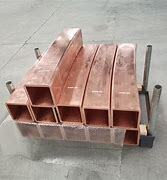
(Polyethylene Insulated Copper Pipe)
Parameters of Polyethylene Insulated Copper Pipe
Polyethylene insulation is commonly used in high-pressure pipelines to provide protection against heat and cold. The most common type of polyethylene insulation is polyethylene film. This type of insulation has been developed using long-lasting materials that have been resistant to corrosion and wear and tear. It is also known for its good insulation properties, which means it can keep the pipeline warm or cool for an extended period.
There are several factors that affect the performance of polyethylene insulation in a pipeline. One of the main factors is the temperature at which the pipe is operating. If the temperature is too high, the insulation may become brittle and will lose its insulation quality. Similarly, if the temperature is too low, the insulation may become insulating too well, increasing the risk of leakage.
Another factor that affects the performance of polyethylene insulation is the material used. Polyethylene films made from high-strength polymers such as,, and vinyl can be highly durable and resistant to fatigue. On the other hand, polyethylene films made from weaker materials like PVC or HDPE may fail to withstand the pressure and extreme temperatures required for high-pitched gas lines.
The production process of polyethylene insulation also plays a crucial role in determining its performance. Factors such as the level of encapsulation and insulation thickness control, the use of additives and coatings, and the composition of the underlying are all important considerations when designing and producing polyethylene insulation.
In addition to its mechanical and physical properties, polyethylene insulation is also characterized by its chemical properties. Polyethylene can be produced through a variety of processes, including immersion processing, exposure to flame, and exposure to water. The chemical properties of polyethylene include high durability, excellent electrical conductivity, and excellent resistance to corrosion.
Overall, polyethylene insulation provides a reliable and cost-effective solution for protecting high-pressure pipelines. Its excellent insulation properties, processingability, and chemical properties make it an attractive option for a wide range of applications. However, the selection of the right polyethylene insulation requires consideration of various factors such as the temperature and pressure at which the pipe is operating, the material used, and the manufacturing process.
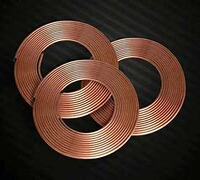
(Polyethylene Insulated Copper Pipe)
Company Profile
Copper Channel is a trusted global metal material supplier & manufacturer with over 12-year-experience in providing super high-quality copper products and relatives products.
The company has a professional technical department and Quality Supervision Department, a well-equipped laboratory, and equipped with advanced testing equipment and after-sales customer service center.
If you are looking for high-quality copper materials and relative products, please feel free to contact us or click on the needed products to send an inquiry.
Payment Methods
L/C, T/T, Western Union, Paypal, Credit Card etc.
Shipment
It could be shipped by sea, by air, or by reveal ASAP as soon as repayment receipt.
FAQs of Polyethylene Insulated Copper Pipe
Q: Is Polyethylene Insulated Copper Pipe better than PEX?
A: Both have advantages. Copper is more durable and resistant to UV rays, but PEX (cross-linked polyethylene) is cheaper, easier to install, and more flexible. The choice depends on factors like budget, installation complexity, and personal preference.
Q: How do you join Polyethylene Insulated Copper Pipe?
A: Copper pipes are commonly joined using soldering (also known as sweating), where a fitting is fitted onto the pipe ends and solder is applied to create a leak-proof seal. Compression and push-fit fittings are alternatives for easier, no-solder connections.
Q: Can Polyethylene Insulated Copper Pipe freeze and burst?
A: Like any pipe material, copper can freeze and potentially burst if the water inside freezes and expands. Proper insulation and maintaining temperatures above freezing are necessary to prevent this.
Q: Does Polyethylene Insulated Copper Pipe need to be grounded?
A: In most plumbing applications, copper pipes do not require grounding. However, for electrical grounding purposes, specific codes and standards may dictate when and how copper pipes can be used as part of an electrical grounding system.
Q: How to Polyethylene Insulated Copper Pipe before soldering?
A: Before soldering, copper pipes and fittings should be cleaned with a wire brush or emery cloth to remove any oxidation, dirt, or oils. Flux is then applied to ensure a good bond between the pipe and the fitting during the soldering process.
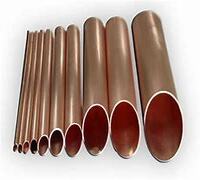
(Polyethylene Insulated Copper Pipe)
